PBSO 9-1-1 COMMUNICATIONS
Our mission is to consistently provide the highest level of excellence in public safety services to the citizens of Palm Beach County. We are committed to providing the public with the most efficient response to emergency calls, mindful of our role in ensuring the safety of law enforcement and public safety personnel. Through integrity, respect, professionalism, and fairness we will maintain our enhanced quality of life in Palm Beach County.
WHAT WE SPECIALIZE IN
We are located in South Florida and are the third largest county in the state with over 1.5 million residents. The Communications Division consists over 190 employees and two independent dispatch/call centers handling over 1.2 million calls for service annually.
Our staff includes 911 Communications Officers and Dispatchers, Teletype, Administrative Personnel, and Office Management. We service 20 Districts throughout unincorporated Palm Beach County including several contracted municipalities.
“We are the First, First Responders.”
Come Work With Us!
“I love that I can help people every single day during their tragedies or emergencies and we can make a difference in Palm Beach County.”

Erin Gregory
“Stop considering, fill out an application. This is an amazing career with phenomenal benefits and extremely rewarding.”

Monique Lewis
“I get to work when things are happening so I get a good experience and that’s what I am able to give to my trainees.”
Job Description
Emergency Communications Officers provide life-saving assistance to the citizens of Palm Beach County and ensure the safety of law enforcement personnel. Communications Officers receive, screen and monitor 9-1-1 emergency and non-emergency calls from the public and other police/public safety agencies by radio or telephone. Prioritizes and dispatches appropriate personnel to incident locations; monitors radio traffic and maintains awareness of activities. This work involves a wide variety of computer transactions and records functions.
PBSO Emergency Communications is staffed 24 hours per day, 7 days a week, including weekends and holidays. Work assignments are mandatory during hurricane, evacuation, or states of emergency. In order to protect the citizens of Palm Beach County, Communications Officers work rotating shifts with variable days off.
Currently, our Communications Officers work 12-hour shifts, either 7am-7pm or 7pm-7am.
Experience, Training, and Requirements
- 18 years or age or older
- High School Diploma/GED
- Must type at least 45 WPM
- Applicants must successfully pass CritiCall Testing
- Position requires a 3-year commitment upon successful completion of training
- Must be able to work shift work – including nights, weekends, and holidays
- A background suitable for Law Enforcement
- Desired Skills/Qualifications:
- Ability to provide detailed information
- Enjoy working in a fast-paced environment
- Excellent critical thinking, multi-tasking, and problem-solving skills
- Works well under pressure, reacting quickly and calmly during stressful situations
Salary
During Training – Communications Trainee starting salary is Pay Grade 220
Upon successful completion of Training – The Communications Trainee moves to*
$5,386/month
Pay Grade
220
Communications
Trainee
$5,629/month
Pay Grade
240
Communications
Officer I
$6,148/month
Pay Grade
280
Communications
Officer II
$6,426/month
Pay Grade
300
Communications
Officer III
*some applicants may be eligible for higher starting rate based on experience
*Certified Training Officers earn an additional incentive while training
* Based on skill set achievement and position availability (See website & job posting for current salary & plan)
Click here to view: Palm Beach County Sheriff’s Office Pay Plan
Benefits
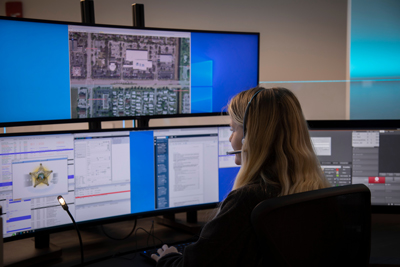
Health, Dental, Vision, and Life Insurance
The Palm Beach County Sheriff’s Office provides an excellent benefits package to our employees. PBSO offers an Open Access Plus In-Network and Open Access Plus Plans for medical insurance and DHMO Dental Care Access or Total DPPO for dental insurance both through Cigna Healthcare. Flexible Spending Accounts are also an option for medical related expenses.
PBSO has four Health & Wellness Centers located throughout Palm Beach County available for our employees and eligible family members. As a PBSO employee you also have access Gym & Weight Room 24/7.
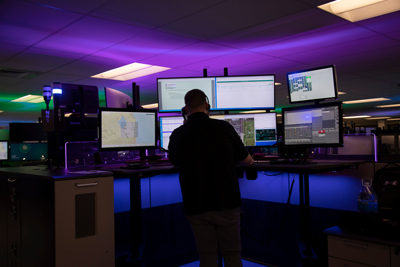
Career Advancement and Tuition Reimbursement
Take the next step and become a Communications Training Officer and help train and mentor new hires. You can also help lead the way as a Communications Supervisor. As a Communications Manager you can pave the way for the future of leaders of PBSO.
PBSO encourages all full-time employees to actively seek opportunities to continue their education and career development. Here at PBSO, we offer a Tuition Reimbursement Program to include a Masters’ Degree.
Paid Time Off and Holidays
All full-time staff receives 12 paid Sick and Vacation days as well as 13 paid Holidays. PBSO also offers Longevity Pay and Longevity Leave for continuous years of service.
PBSO is also committed to providing the best possible options for yearly shift selection.
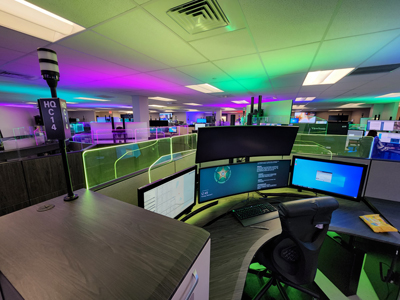
Retirement
As a PBSO employee you are part of the State of Florida Retirement System (FRS) and have the option of participating in two FRS retirement plans: the FRS Investment Plan and the FRS Pension Plan (which includes the DROP). PBSO also offers Deferred Compensation to all employees and annual Cost of Living Adjustments per our Collective Bargaining Agreement Contract (CBA).
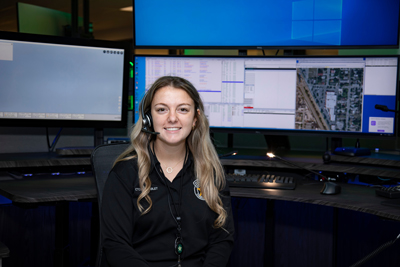

Phone: (561) 688-3421
Email: 911training@pbso.org
Palm Beach County Sheriff’s Office
3228 Gun Club Road
West Palm Beach, FL 33406

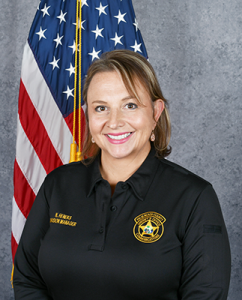
Non-Emergency calls:
(561) 688-3000
Headquarters Emergency
Communications Center
3228 Gun Club Road
West Palm Beach, FL 33406
Eagle Emergency
Communications Center
38673 James Wheeler Way, Bldg 2089
Belle Glade, FL 33430
Courthouse Emergency
Communications Center
205 North Dixie Highway
West Palm Beach, FL 33401
Information for the Hearing Impaired
Our VESTA system recognizes callers that are using a TTY through the Baudot tones.
If you call 9-1-1 through TTY, we are automatically notified, and we will be able to communicate properly.
9-1-1 FAQ's
How does 9-1-1 work?
- A professionally trained 9-1-1 Emergency Communications Officer answers your call.
- The 9-1-1 Emergency Communications Officer assesses your situation to provide the proper response. This may include sending a PBSO deputy or transferring the call to Fire Rescue or another law enforcement agency.
What should I do when I call 9-1-1?
- Stay CALM when calling 9-1-1.
- Be AWARE of your location at all times.
- CLEARLY state your name, location, and nature of the emergency.
- LISTEN carefully to the questions and instructions given.
- Be OBSERVANT! The more details and specifics you provide, the better we can get the appropriate help to you in a timely manner.
- Answer ALL questions as accurately as possible. There may be many questions, which does not slow down the response of emergency services.
- Use 9-1-1 for emergencies ONLY!
What is your Non-Emergency Number?
- 561-688-3000
If I accidentally call 9-1-1 should I hang up?
- No, stay on the phone and let the Communications Officer know that it was a mistake.
- Also remember to place your cell phone on “Lock or Key lock” mode so that it does not dial 9-1-1.
- A Deputy may make a wellness check even if you say there’s no emergency.
When should I use Text to 9-1-1?
If you find yourself in an emergency situation where a voice call is not possible or would be dangerous, you can text 9-1-1. If you are an individual who is:
- Deaf
- Hard of hearing
- Have a speech impairment
What if I speak another language?
The 9-1-1 system contracts with an Interpreter Service for access to translation assistance of over 140 languages at all times.
What are some examples of emergencies?
- Serious automobile accidents.
- Seeing smoke or fire, no matter how small.
- When there is any type of medical problem.
- If you witness a burglary or assault in progress.
- When there is imminent danger to someone’s safety.
Anytime you feel at risk or have an emergency, call 9-1-1 FIRST before anyone else!










